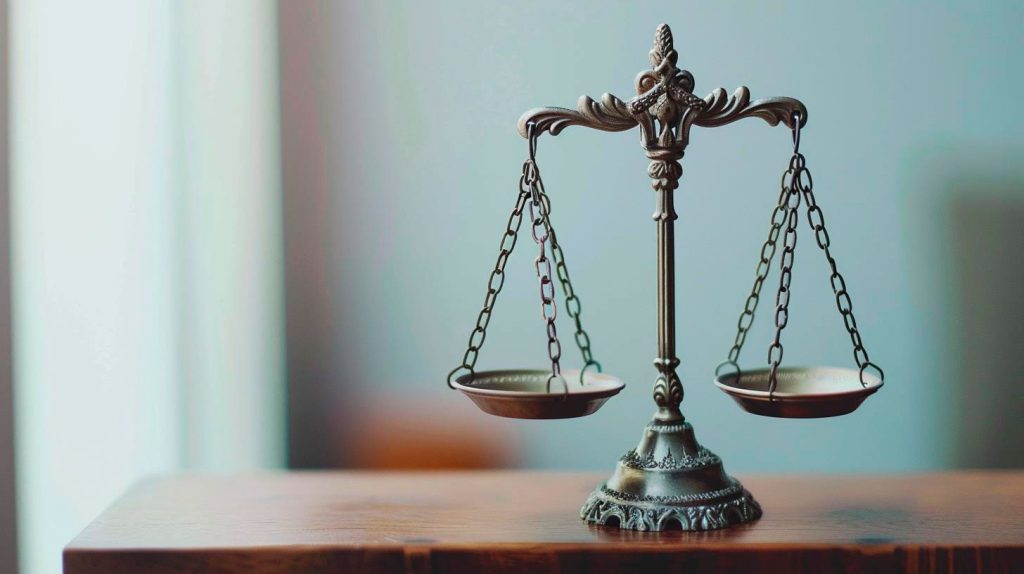
Rights and Responsibilities of Homeowners
Rights of Homeowners
- Property Ownership: One of the fundamental rights of homeowners is the legal ownership of their property. This includes the right to occupy, use, and sell the property as they see fit, within the constraints of local zoning laws and regulations.
- Privacy: Homeowners have the right to privacy within their property. This means that others cannot enter your home without permission, except for certain circumstances such as emergencies or legal matters.
- Property Improvement: Homeowners have the right to make improvements to their property, whether it is renovating the kitchen, adding a swimming pool, or landscaping the yard. However, it is important to check with local authorities and homeowner associations for any restrictions or permits required.
- Quiet Enjoyment: Homeowners have the right to “quiet enjoyment” of their property, meaning they have the right to live in peace and quiet without interference from neighbors or landlords.
Responsibilities of Homeowners
- Property Maintenance: One of the primary responsibilities of homeowners is to maintain their property in good condition. This includes regular upkeep such as lawn care, cleaning, and repairs to ensure the property remains safe and habitable.
- Payment of Mortgage and Taxes: Homeowners are responsible for making timely payments on their mortgage and property taxes. Failure to do so can result in foreclosure or legal action by the lender or local government.
- Compliance with Laws and Regulations: Homeowners must comply with local building codes, zoning laws, and homeowner association rules. Failure to do so can result in fines, penalties, or legal action.
- Insurance: It is essential for homeowners to have property insurance to protect their investment from unforeseen events such as natural disasters, fires, or theft. In some cases, mortgage lenders may require homeowners to have insurance coverage.
Importance of Legal Assistance
While homeowners have certain rights and responsibilities, legal issues can still arise that require professional assistance. It is crucial to seek legal guidance from experienced real estate lawyers to ensure your rights are protected and to navigate any legal challenges that may arise.
According to recent statistics, homeowners who seek legal assistance when faced with property-related legal issues are more likely to achieve favorable outcomes compared to those who navigate the legal system on their own. Legal experts can provide valuable advice, representation, and guidance throughout the legal process.
By understanding your rights and responsibilities as a homeowner and seeking legal assistance when needed, you can protect your investment and ensure a successful homeownership experience.
Seeking Legal Assistance for Loan Modification Issues
However, navigating the loan modification process can be complex and overwhelming for many borrowers, which is why seeking legal assistance is often recommended.
When it comes to loan modification issues, having a knowledgeable and experienced lawyer on your side can make all the difference. A lawyer specializing in real estate and finance law can help you understand your options, negotiate with your lender on your behalf, and ensure that your rights are protected throughout the process.
Why Legal Assistance is Essential for Loan Modification
One of the main reasons to seek legal assistance for loan modification issues is the complexity of the process. Lenders have strict requirements and guidelines for loan modifications, and it can be difficult for borrowers to navigate these on their own. A lawyer can help you gather all the necessary documentation, review your financial situation, and present a strong case to your lender for modification.
Another important reason to seek legal assistance is the potential for predatory lending practices. Some lenders may take advantage of borrowers who are in financial distress by offering them unfavorable loan modification terms. A lawyer can help you spot these predatory practices and ensure that you are getting a fair deal from your lender.
The Benefits of Hiring a Lawyer for Loan Modification
- Expertise: A lawyer specializing in real estate and finance law has the expertise and knowledge to guide you through the loan modification process.
- Negotiation skills: A lawyer can negotiate with your lender on your behalf to secure the best possible terms for your loan modification.
- Legal protection: A lawyer can ensure that your rights are protected throughout the loan modification process and help you avoid potential legal pitfalls.
- Peace of mind: Knowing that you have a skilled professional on your side can provide peace of mind during a stressful time.
Statistics on Loan Modification
According to recent statistics, more than 1 million homeowners have received loan modifications since the housing crisis of 2008. These modifications have helped many borrowers avoid foreclosure and stay in their homes.
However, the loan modification process can still be challenging for many borrowers, with a high percentage of applications being denied by lenders. This is where legal assistance can make a difference, increasing the chances of a successful loan modification.
When facing loan modification issues, it is important to seek legal assistance from a qualified lawyer who specializes in real estate and finance law. This can help you navigate the complex process, protect your rights, and secure the best possible terms for your modified loan agreement. With the expertise and guidance of a lawyer, you can have peace of mind knowing that you are in good hands during this stressful time.
Remember, statistics show that seeking legal assistance can increase the chances of a successful loan modification, ensuring that you can stay in your home and avoid foreclosure. Don’t hesitate to reach out to a lawyer for help with your loan modification issues.
Understanding the Homeowners Bill of Rights
What is the Homeowners Bill of Rights?
The Homeowners Bill of Rights was enacted in response to the housing crisis that occurred in the late 2000s. These laws provide protections for homeowners facing foreclosure and aim to prevent predatory lending practices. The goal of the Homeowners Bill of Rights is to ensure that homeowners have access to fair treatment and options to avoid foreclosure.
One key aspect of the Homeowners Bill of Rights is the requirement for lenders and servicers to engage in a fair and transparent foreclosure process. This includes providing homeowners with information about their options for avoiding foreclosure and giving them the opportunity to explore alternatives to foreclosure, such as loan modifications or short sales.
Key Protections Under the Homeowners Bill of Rights
- Dual tracking protection: Lenders are prohibited from moving forward with foreclosure proceedings while a homeowner is actively pursuing a loan modification.
- Single point of contact: Homeowners have the right to a single point of contact at their lender or servicer who is responsible for communicating with them about their loan and foreclosure alternatives.
- Fair review process: Homeowners have the right to a fair review process for loan modification applications, with specific timelines for decision-making and an appeals process in place.
Benefits of the Homeowners Bill of Rights
By understanding and invoking the protections provided by the Homeowners Bill of Rights, homeowners can avoid foreclosure and potentially save their homes. The dual tracking protection, in particular, can give homeowners the time they need to explore alternatives to foreclosure and work with their lender to find a solution that allows them to stay in their home.
Having a single point of contact at their lender can also streamline communication and make it easier for homeowners to get the information they need to make informed decisions about their mortgage. This can help alleviate some of the stress and confusion that often accompany the foreclosure process.
Statistics on Homeownership and Foreclosure
According to the National Association of Realtors, homeownership rates in the United States are currently at 65.8%, with millions of Americans facing the risk of foreclosure each year. Understanding the rights and protections afforded to homeowners under the Homeowners Bill of Rights is crucial for ensuring that homeowners are able to navigate the complexities of the foreclosure process and protect their homes.
By being informed and proactive, homeowners can take steps to prevent foreclosure and safeguard their most valuable asset. The Homeowners Bill of Rights serves as a valuable tool for homeowners to assert their rights and protect their homes from unfair and predatory practices.
Exploring Options for Loan Modification
In this article, we will explore the options available to homeowners facing financial difficulties and explain how a loan modification could help you avoid foreclosure and regain financial stability.
What is a Loan Modification?
A loan modification is a permanent change to the terms of your existing mortgage that can help make your monthly payments more affordable. This can involve lowering your interest rate, extending the term of your loan, or reducing the principal balance owed. Loan modifications are typically pursued by homeowners who are struggling to make their monthly payments due to financial hardships such as job loss, medical bills, or divorce.
According to recent statistics, more than 2 million homeowners have received a loan modification since the housing crisis in 2008. This demonstrates the effectiveness of loan modifications in helping struggling homeowners avoid foreclosure and stay in their homes.
Benefits of Loan Modification
There are several benefits to pursuing a loan modification if you are struggling to make your mortgage payments. Some of the key advantages include:
- Lower monthly payments: A loan modification can help lower your monthly payments, making it easier for you to afford your mortgage.
- Avoid foreclosure: By modifying your loan, you can avoid the stress and financial consequences of foreclosure.
- Stay in your home: A loan modification can help you stay in your home and regain financial stability without having to move.
- Improve credit score: By avoiding foreclosure and making timely payments on your modified loan, you can improve your credit score over time.
Types of Loan Modifications
There are several types of loan modifications available to homeowners, depending on their financial situation and lender policies. Some of the most common types of loan modifications include:
- Interest rate reduction: This type of modification involves lowering the interest rate on your loan, resulting in lower monthly payments.
- Term extension: Extending the term of your loan can help reduce your monthly payments by spreading them out over a longer period of time.
- Principal reduction: Some lenders may agree to reduce the principal balance owed on your loan, which can significantly lower your monthly payments.
How to Qualify for a Loan Modification
Qualifying for a loan modification will depend on several factors, including your financial hardship, income, and ability to make modified payments. To increase your chances of approval, consider the following tips:
- Provide documentation of your financial hardship, such as a job loss or medical emergency.
- Demonstrate your ability to make modified payments by providing proof of income and expenses.
- Contact your lender as soon as possible to discuss your options and submit a complete application for a loan modification.
Exploring options for loan modification can be a viable solution for homeowners facing financial difficulties and struggling to make their mortgage payments. By pursuing a loan modification, you can lower your monthly payments, avoid foreclosure, and regain financial stability. If you are considering a loan modification, be sure to gather all necessary documentation and contact your lender to discuss your options. Remember, seeking professional legal advice from a qualified attorney specializing in loan modifications can help guide you through the process and increase your chances of a successful outcome.













What happens if a homeowner’s legal protections during a loan mod are violated? Can they take legal action?
Hey, do homeowners have to pay for legal help during the loan mod process? Or is it free?
Legal protections for homeowners during loan mod process are like super important, right? Can we get a breakdown of what those are?
Hey, can someone explain what legal protections are available to homeowners during the loan mod process? I’m a bit lost here.
Legal protections during a loan mod are like a safety net for homeowners, right? Can someone share some success stories?
Can homeowners apply for legal protections during a loan mod online or do they have to go in person?
Do homeowners need to hire a lawyer to access legal protections during the loan modification process, or can they do it themselves?
Homeowners facing foreclosure must know their legal protections during the loan mod process. How can they protect themselves?
Do homeowners have to meet certain criteria to qualify for legal protections during the loan modification process?
Yo, like, I think homeowners can like, stop foreclosure with legal protections during a loan mod. Am I right?
Like, I heard that legal protections can help homeowners negotiate better loan mod terms. Is that true?
Are there lawyers that specialize in helping homeowners with legal protections during the loan modification process?
Legal protections during a loan mod could be a game-changer for struggling homeowners. How can they take advantage of them?
Do homeowners have to go to court to get legal protections during the loan modification process?
Legal protections during a loan mod are like essential for homeowners, right? Can someone explain how they work?
Getting legal protections during a loan mod can be a real headache. How can homeowners simplify the process?
Hey, I’m not sure what legal protections are available during a loan mod. Can someone help clarify?
Yo, so like, I heard homeowners can like, get some legal protections during the loan mod process. Is that true or what?
What rights do homeowners have when it comes to legal protections during the loan modification process?
Legal protections during a loan mod can be confusing. Are there any resources available to help homeowners navigate the process?
Getting legal protections during a loan mod sounds like a lifesaver for homeowners. Can we get more info on how to access them?